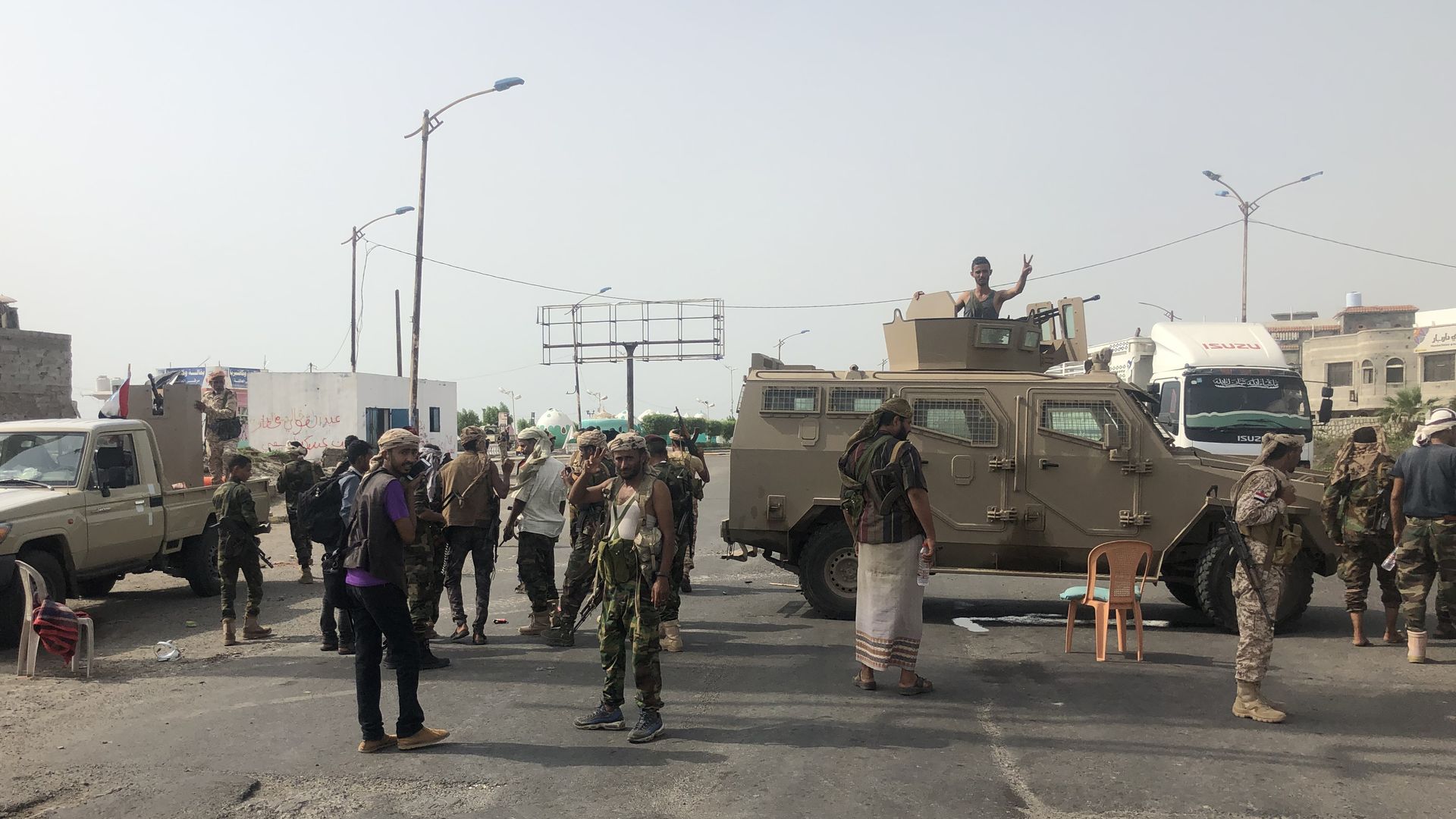Southern separatism threatens new front in Yemen's war
Add Axios as your preferred source to
see more of our stories on Google.

Fighters in Yemen's UAE–trained, STC–heavy Security Belt Force near the Aden airport. Photo: Nabil Hasan/AFP/Getty Images
Military confrontations between Yemen's internationally recognized government and a regional separatist group, the Southern Transitional Council (STC), are threatening to open a new frontier in the country's civil war.
Why it matters: The Saudis and Emiratis now face divisions among their allies in the fight against Yemen's Iran-backed Houthi rebels. They are currently facilitating indirect talks in Jeddah to de-escalate tensions between the government and the STC, but a new round of violence could erupt if that effort falls through.
Driving the news: Last month, a ballistic missile attack on UAE-backed Security Belt Forces in the interim capital of Aden killed more than 30 soldiers. Although Houthis claimed responsibility, the STC accused government officials from the al-Islah party, which is loosely affiliated with the Muslim Brotherhood, of plotting the attack to weaken their southern leadership.
- STC forces subsequently overtook Aden's airport and advanced to nearby cities of Shabwa and Abyan, while the government mobilized troops from northern and tribal areas — renewing a sense of oppression that augmented calls for southern independence.
- Tensions escalated further after the UAE conducted an airstrike against targets it declared terrorists but which the Yemeni government claimed as members of its army.
Context: The southern independence movement has been a 2-decade-long struggle, slowed by state repression and imprisonment of its leaders.
- Yemen's government has been self-exiled in Riyadh, unable to provide security for citizens or fully function in the south, which diminished its support.
- As the Yemen government's relationship with the UAE has soured, it has asked its Saudi partners to help end the Emiratis' “flagrant interference” on behalf of the STC.
What to watch: Since STC-allied forces have assisted the Saudi-led military coalition, they hope to secure guarantees for their overall objective of reclaiming their southern state — support the Saudis are unlikely to deliver.
- At most, Saudi Arabia might back a power-sharing agreement, not wanting to harm its relationship with Yemen's government or risk being left with a de facto Houthi state on the Saudi border.
- The fraught politics of the conflict may continue to limit open dialogue, complicating attempts to accommodate each party's divergent interests.
Fatima Abo Alasrar is a non-resident scholar at the Middle East Institute.
